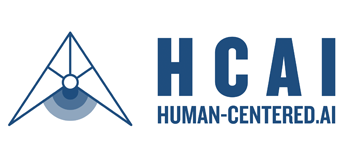When: Thursday, June, 6, 2019 10:00 – 16:00
Where: Graz, Austria, Medical University Graz, New Med Campus, Neue Stiftingtalstrasse 2
Venue: Hörsaal MC 5 (MC 1.A.EG.021)
Program: download here (pdf, 113 kB)
Direction from Airport Graz: Take taxi to LKH/New Med Campus, Neue Stiftingstalstrasse 2
Direction from Hauptbahnhof: Take tram Nr. 7 towards LKH/Medizinische Universität, final stop
The symposium is co-organized by the Institute of Pathology and the Institute for Medical Informatics, Statistics and Documentation of the Medical University of Graz. For further enquiries contact the local organizers:
Heimo MÜLLER (heimo.mueller AT medunigraz.at) and Andreas HOLZINGER (andreas.holzinger AT medunigraz.at)
Participation is free, pre‐registration via e‐Mail to: penelope.kungl@medunigraz.at
AI in pathology is very promising, e.g. in specific cases machine learning approaches, particularly deep learning, even exceeds human performance. However, in the context of medicine it is important for a human expert to validate the outcome and/or to interact with the AI. Current AI models lack an explicit explanation component that allows a human to understand the results. There is a need for transparency and thus traceability of such solutions to make them usable for medical decision support. The combined use of human intelligence and artificial intelligence for context understanding should bring important insights and new methodological solutions.
Machine learning requires big training data sets that well cover the spectrum of a variety of human diseases in different organ systems. Data sets have to meet quality- and regulatory criteria and must be well annotated for machine learning at patient-, sample- and image-level. Here biobanks play a central and future role providing large collections of high-quality well-annotated samples and data. The main challenges are finding biobanks containing ‘‘fit-for-purpose’’ samples, providing quality related meta-data, gaining access to standardized medical data and annotations, and mass scanning of whole slides including efficient data management solutions.



